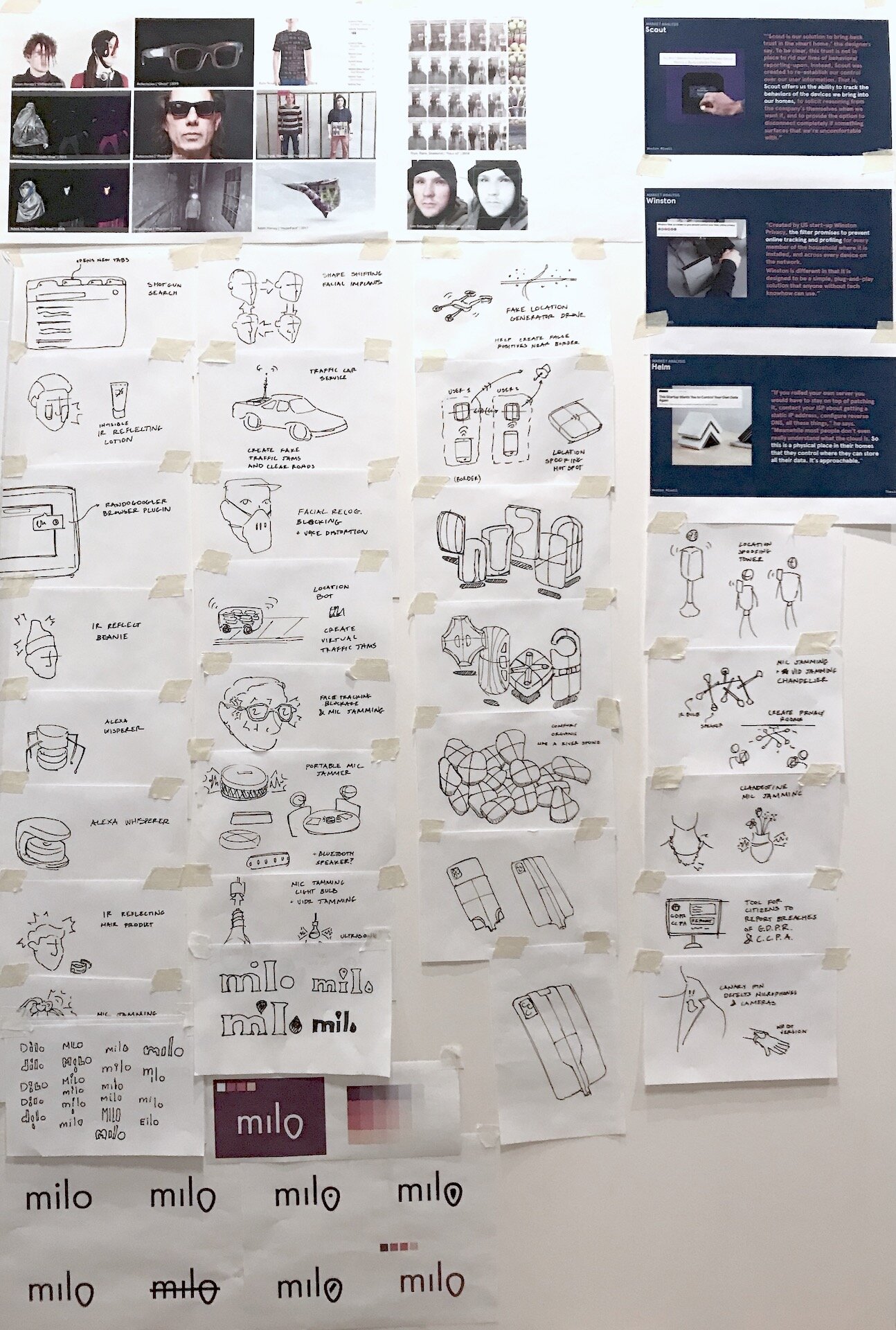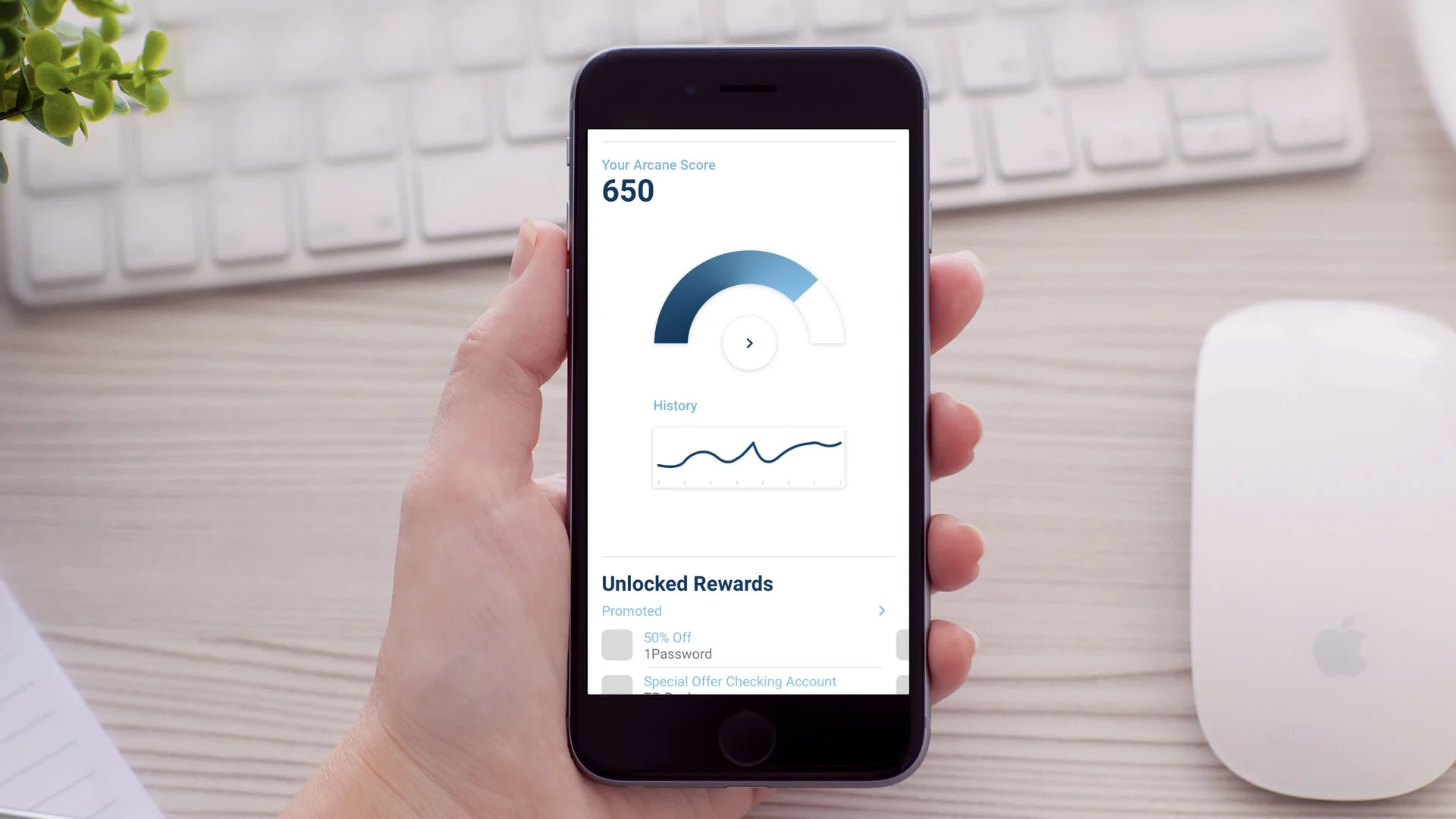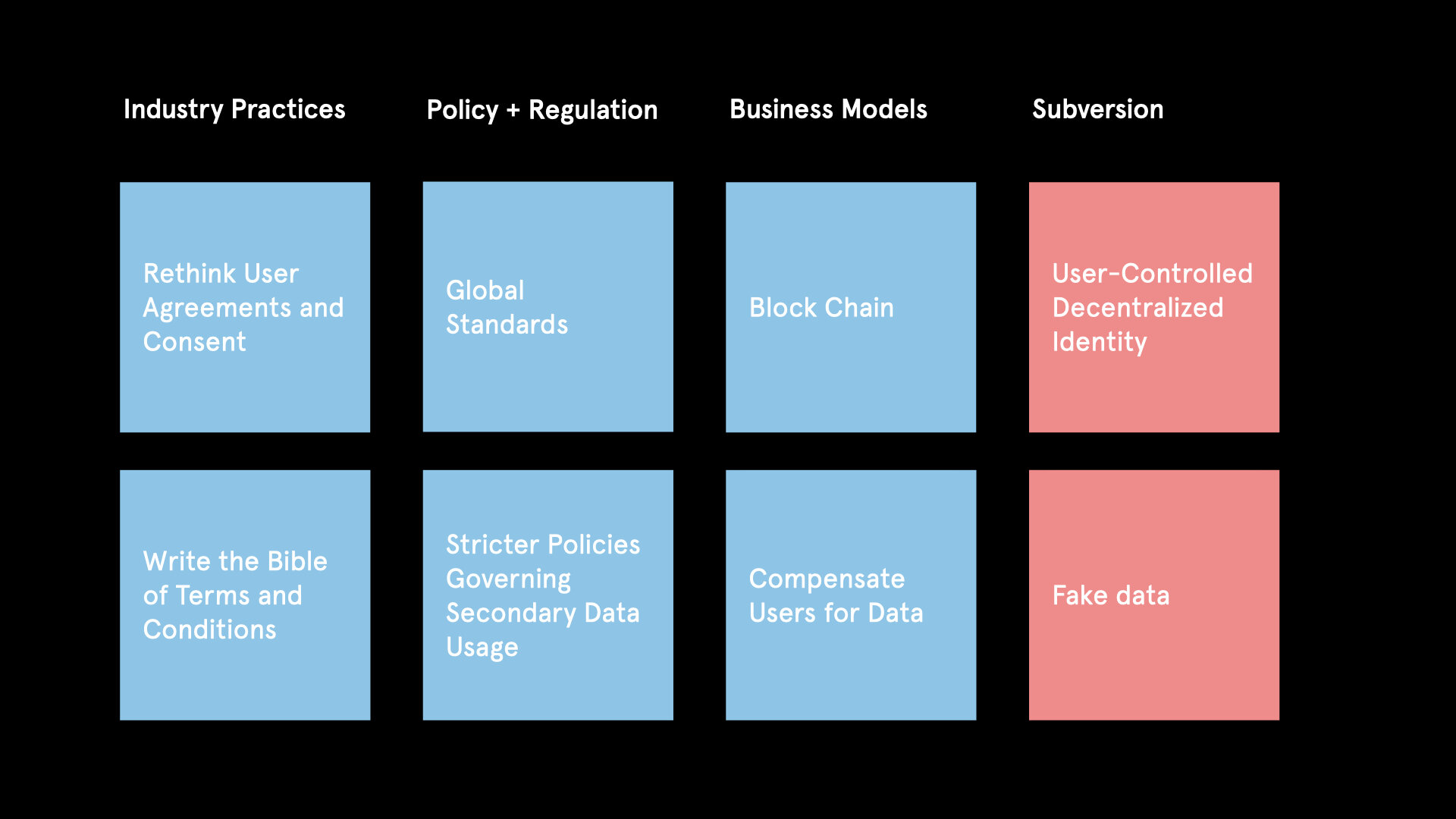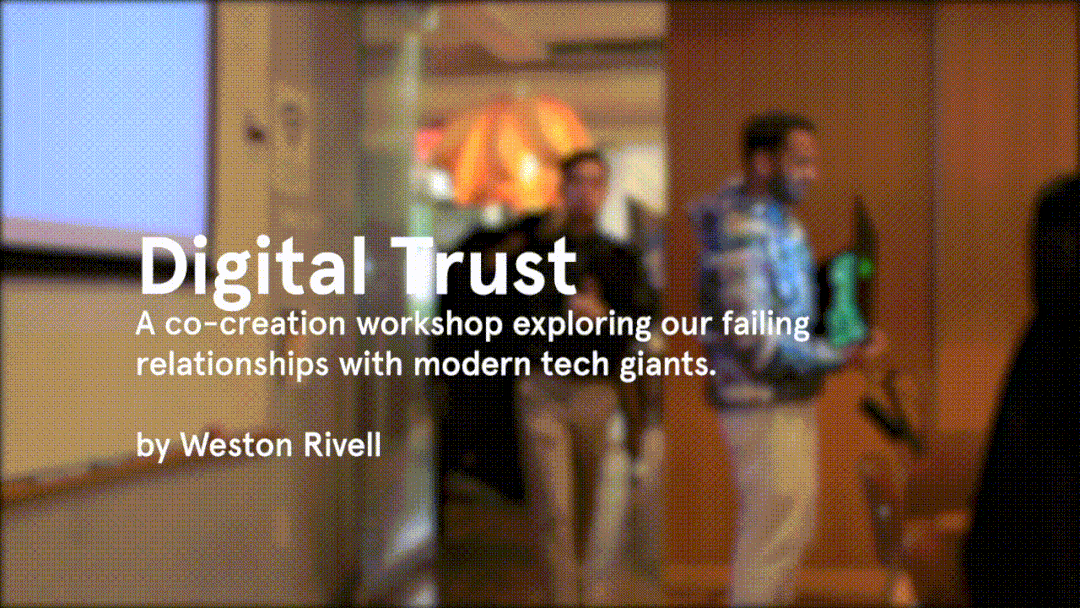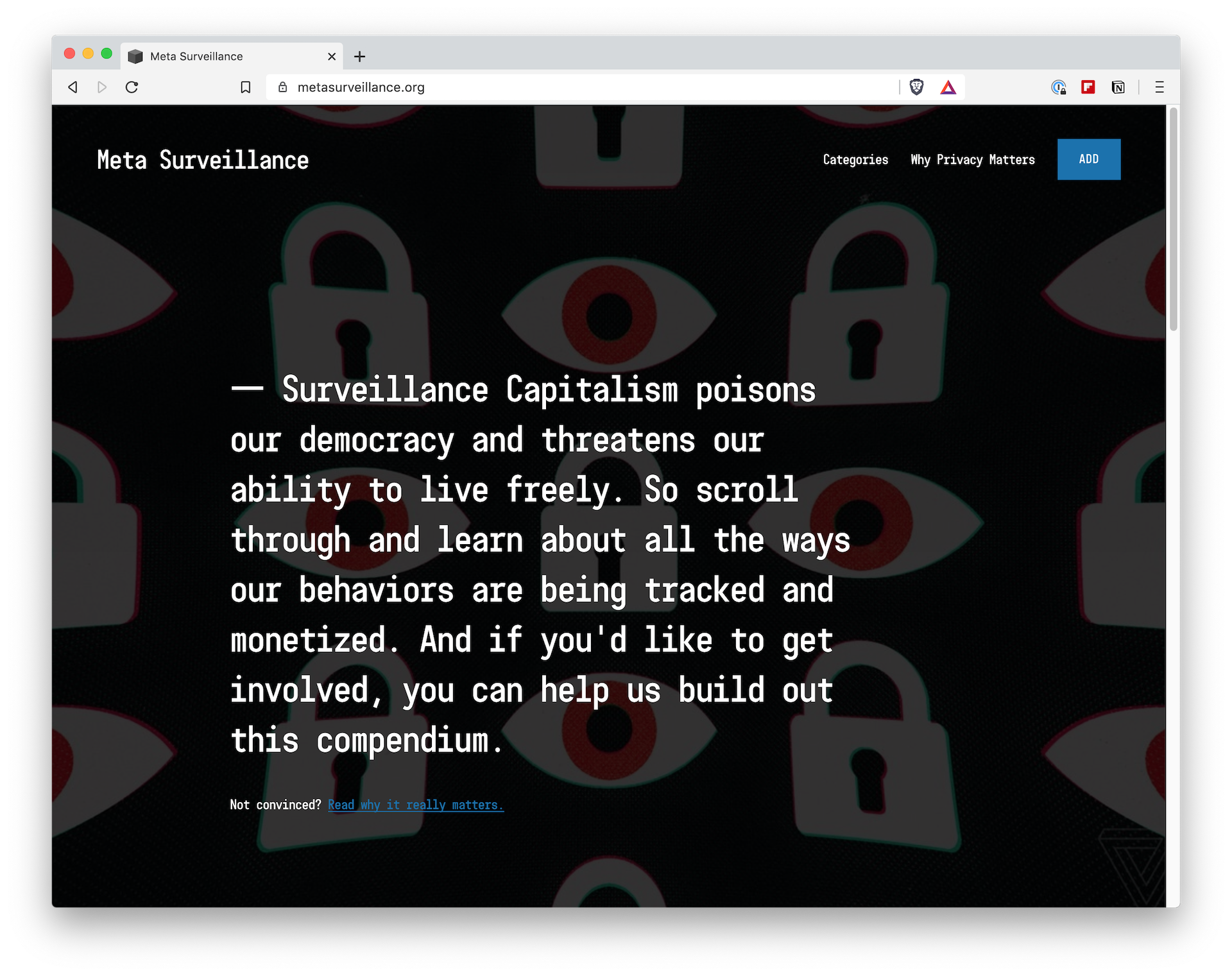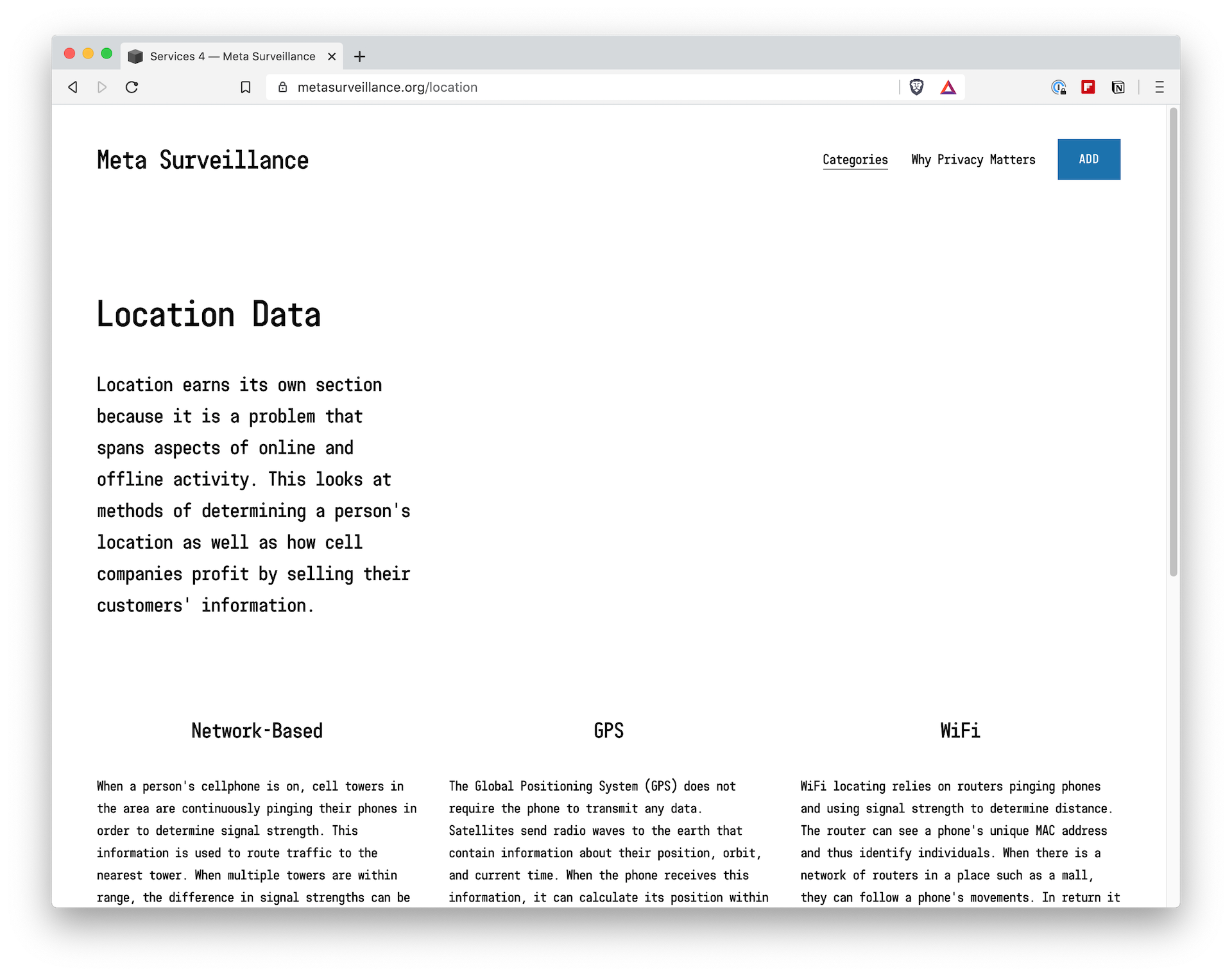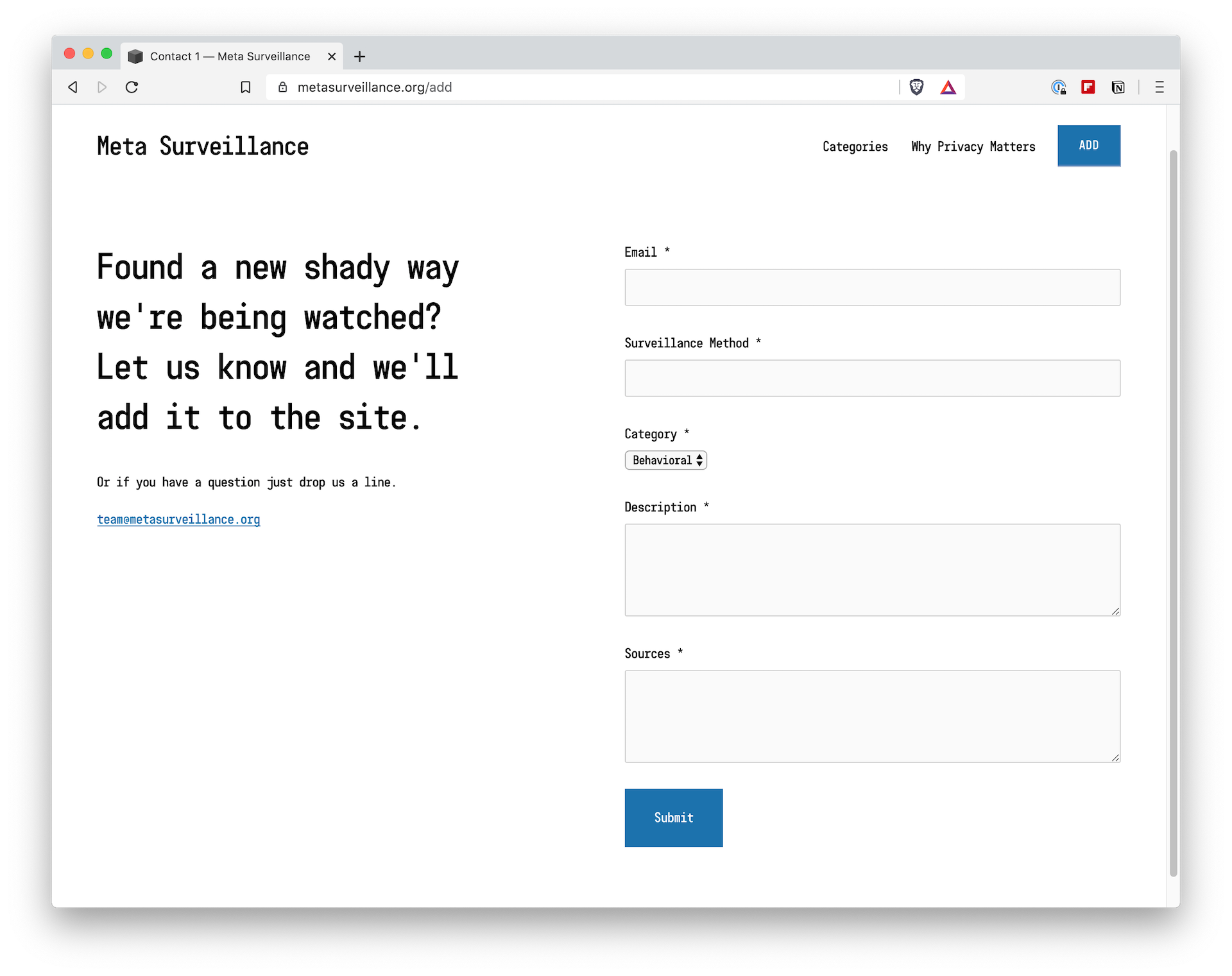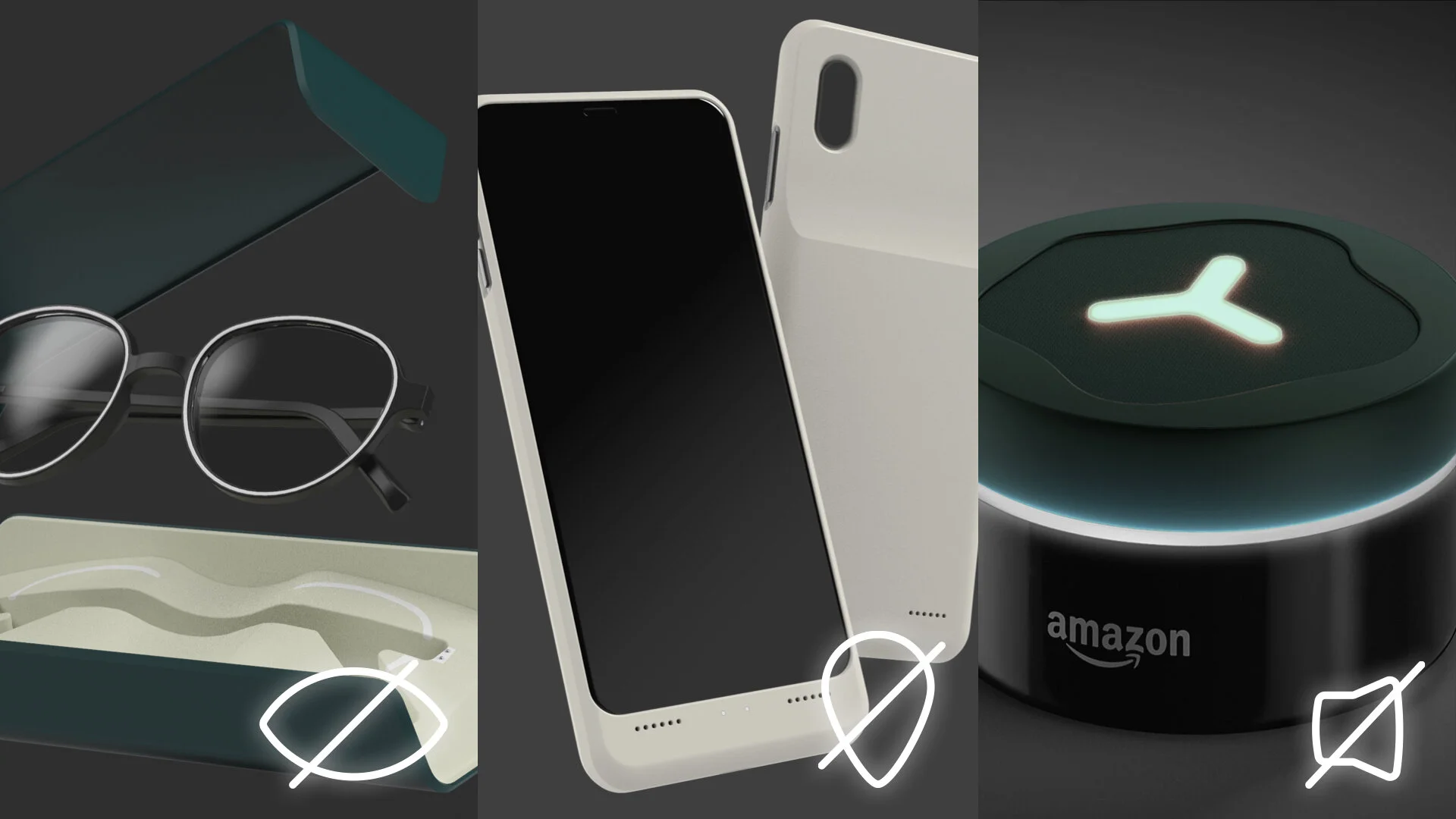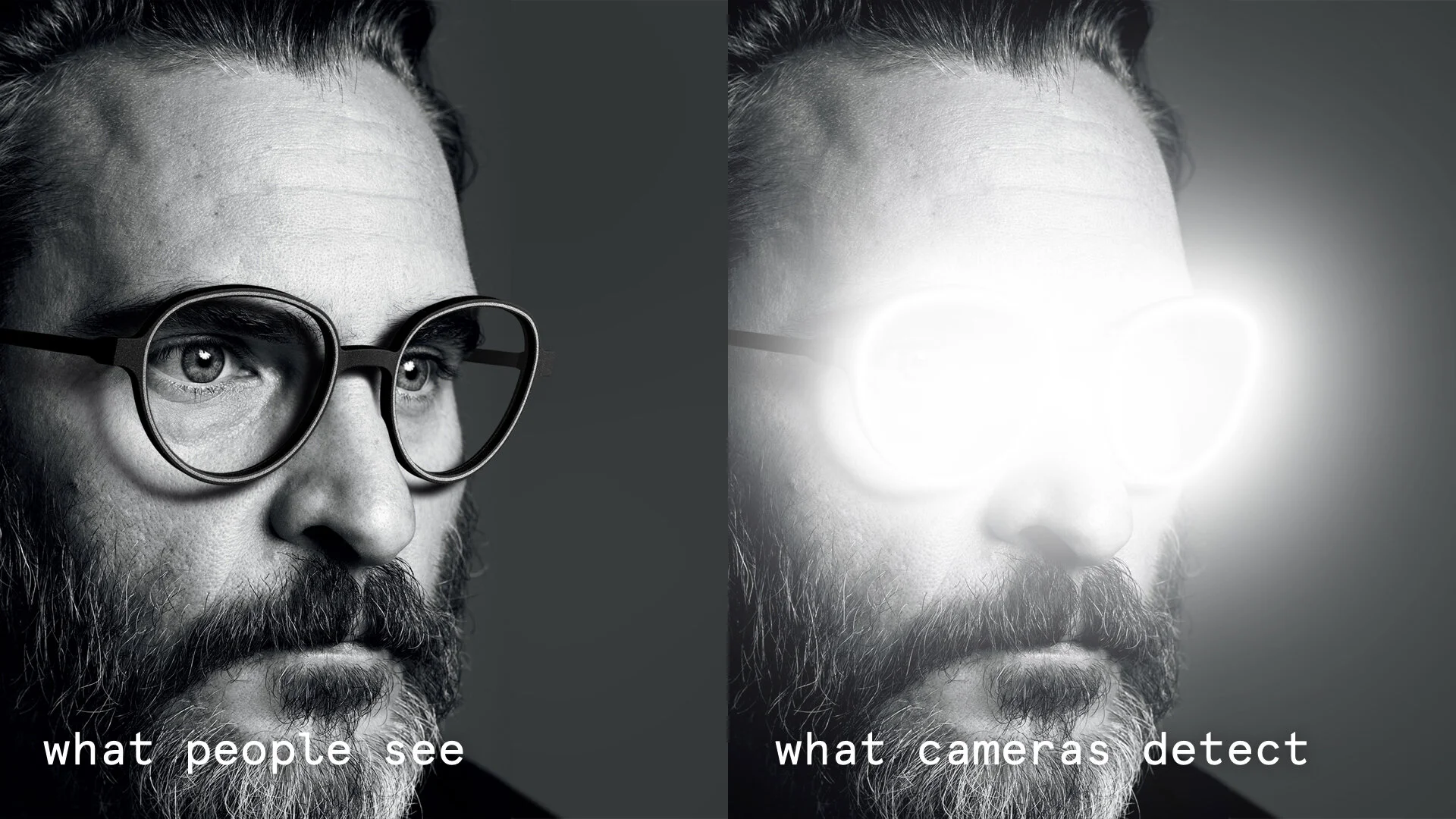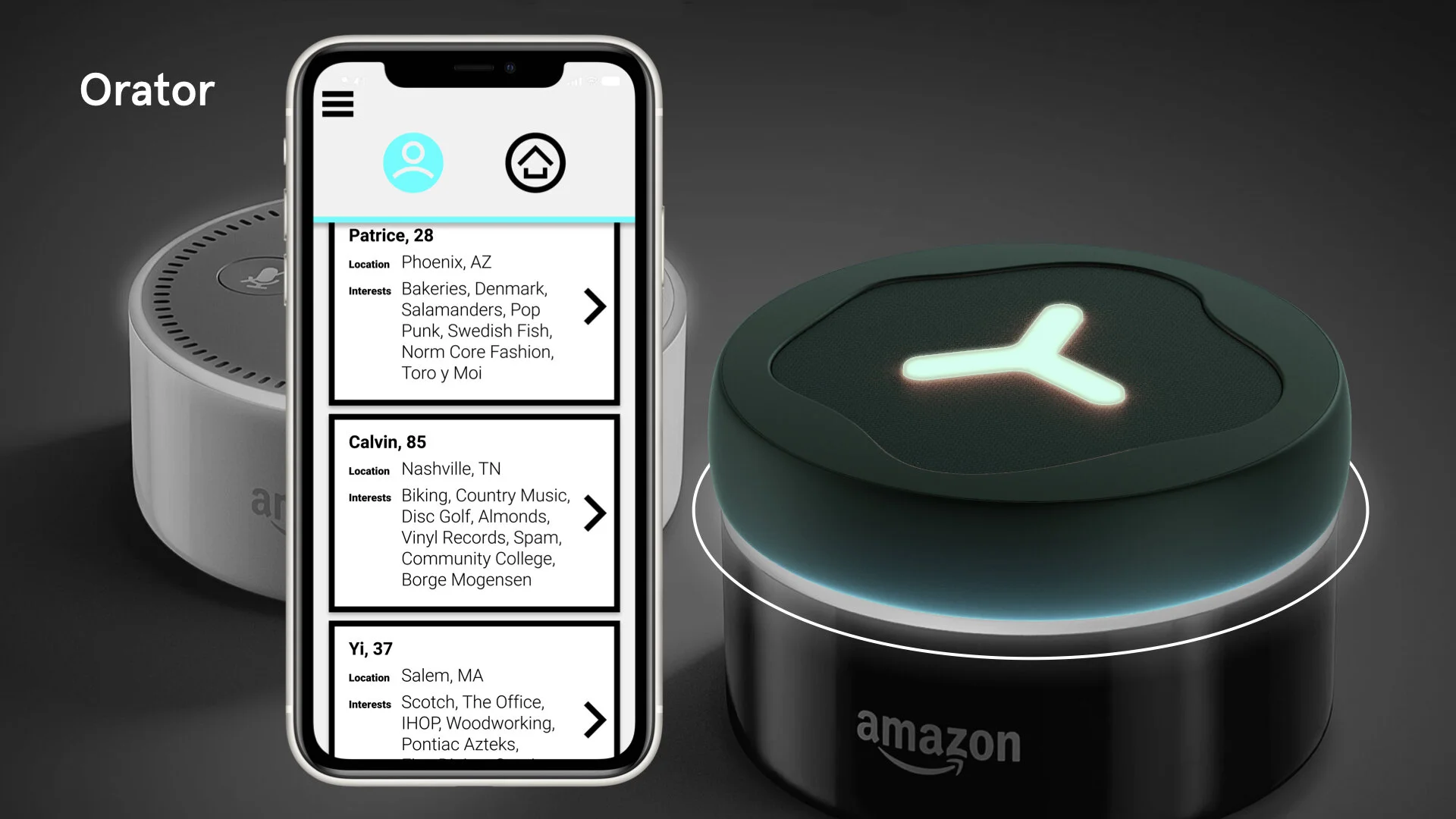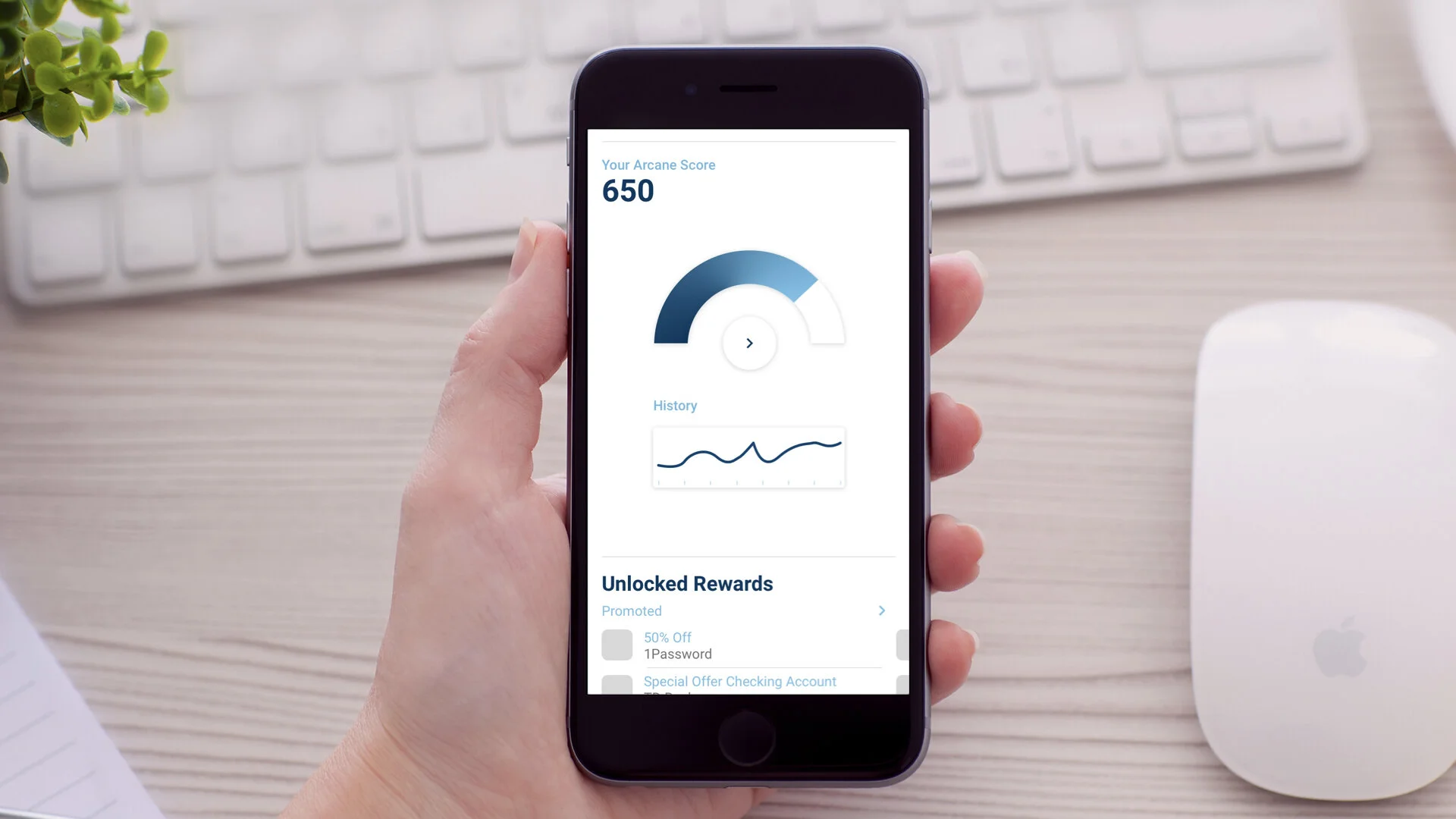AUTOMADA: Privacy and Propriety in the Age of Surveillance Capitalism
In his thesis, AUTOMADA: Privacy and Propriety in the Age of Surveillance Capitalism, Weston Rivell sets out to address the universal problem of internet surveillance. This is part of a more significant issue we are now identifying as 'surveillance capitalism' thanks to author Shoshana Zuboff who states, "Users are not customers, nor are they 'the product.' They are merely free sources of raw material." This raw material is processed into behavioral information used to shape our worldview and manipulate our actions through targeted content and choice architectures.
"It's too soon to tell whether recent actions taken by corporations and governments are going to lead to meaningful shifts towards an autonomous future or if they will just create a greater illusion of privacy. That's why it's important to do this work right now. We need to tip the scales in favor of citizens."
Inspired by the research of Daniel Solove, who authored the Taxonomy of Privacy—or more accurately, Taxonomy of Privacy Violations—Weston explored several approaches to this topic. The first was primarily about working within that taxonomy to spread awareness and create anti-surveillance tools. However, the work gained much more consequence when his focus turned towards reframing incentives to alter user behavior across the entire spectrum of privacy.
Co-Creation
Weston held a co-creation workshop to investigate consumers' failing relationships with tech giants and ideate interventions to address the uncovered issues. It started with the participants looking at their personal Google Maps Timelines and Facebook Ads Information, which provide a clear and shocking demonstration of the amount of personal information that these companies gather and store on their users.
In response to the information they saw online, the participants pinpointed issues and emotions that undermined their ability to trust these companies. And with those ideas, they dove into a second generative exercise that asked them to create interventions to restructure these relationships. The ideas they generated fell under four major themes, industry practices, policy and regulation, business models, and subversion.
MetaSurveillance.org
MetaSurveillance is a collaborative compendium that tracks and categorizes all the different ways citizens are being surveilled. This looks at surveillance from both governments and private entities (i.e., tech companies and data brokers). There is a base level of information present that it is written and categorized by volunteer moderators. Users can add information to the site through a page with a series of forms that ask for the name of the surveillance method, description, and information sources.
The Vigilance Line
The Vigilance line is a set of three different products that address the three most pervasive and obtrusive categories of surveillance in our day-to-day lives: video-, location-, and audio-based.
"The goal with Vigilance Line is to use design to assert that owning our privacy should not be a statement, but it should be a norm that we are demanding."
Unseen Glasses
The Unseen glasses prevent video surveillance via the incorporation of infrared light-emitting diodes around the rim of the frames. This IR light is invisible to the naked eye, but within the detectable range of image sensors, it obscures any camera's view of the user's face. This prevents facial recognition software from being able to see and identify the wearer.
Unfound Phone Case
The Unfound phone case provides a seamless location spoofing experience to the user. It works by using embedded circuitry to generate and broadcast WiFi beacon packets, which contain false location information back to the phone. Additionally, the phone case can collect signatures from existing WiFi networks as the user moves through different spaces to aggregate additional falsifiable location data.
Orator
The Orator addresses the presence of audio surveillance in our daily lives that is embodied in the now ubiquitous presence of smart speakers. The orator's basic functionality is to act as a gatekeeper for your smart speaker. It does this by emitting an ultrasonic signal that jams the smart speaker's microphones until you say your selected password to the Orator. The Orator also whispers random commands to your smart speaker to generate fake data, which will throw off tech companies' behavioral prediction algorithms.
Arcane
Arcane is a platform whose mission is to encourage citizens to protect their privacy. It does this first by making privacy tangible. It assigns consumers a score based on their level of digital privacy and security. And second, it makes privacy rewarding. Like a credit score, users can leverage it to gain benefits from companies that value private and secure customers.
"The major 'aha moment' came with the realization that privacy habits exist along a spectrum. And while many people think they aren't on that spectrum, even by setting their Instagram account to private or using a private window while searching for flight tickets, they are taking steps in the right direction. So it's all about building on existing behaviors."
To learn more about Weston Rivell's work, take a look at his projects in more detail at westonrivell.com.




